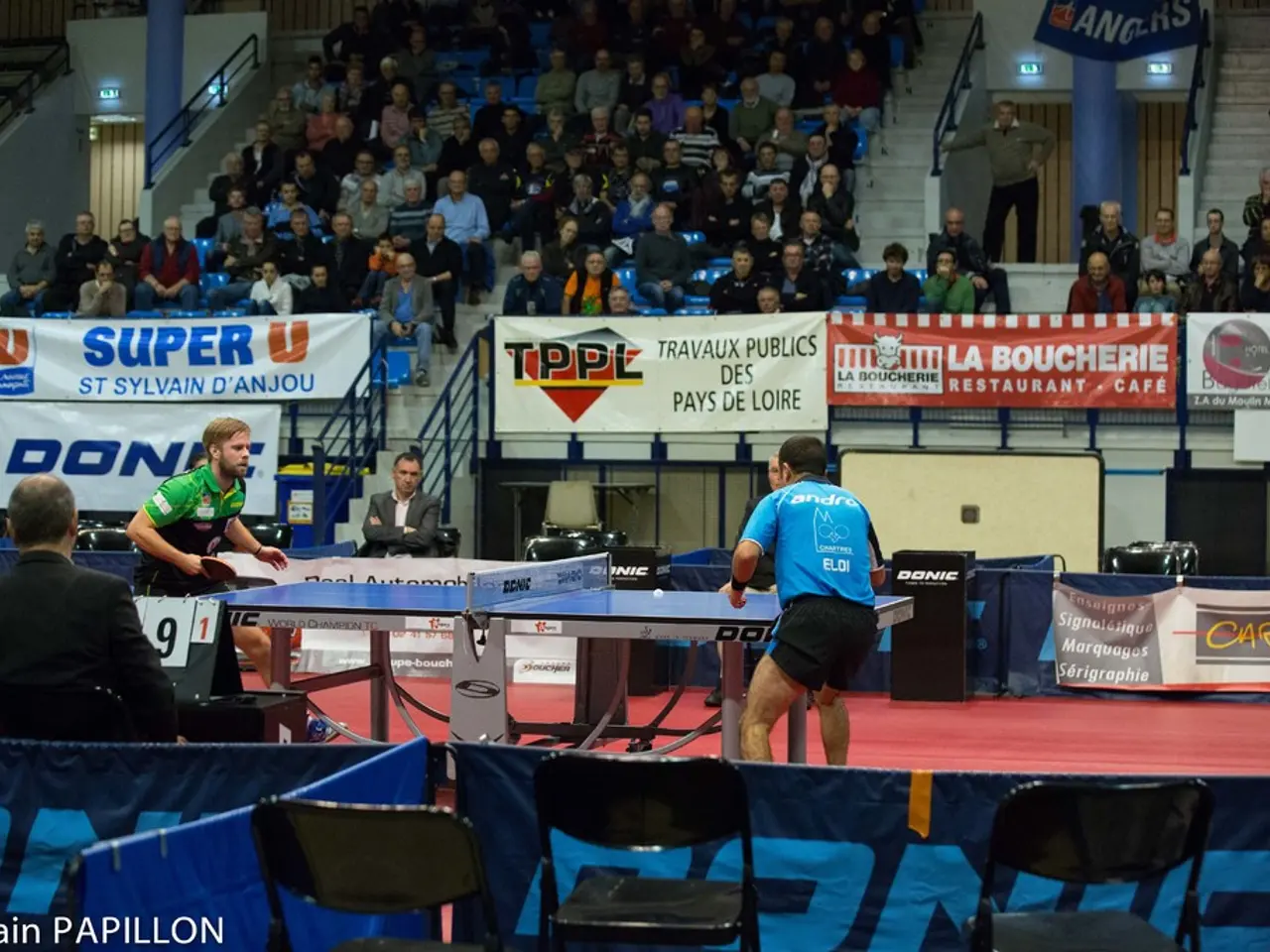historic progression of England's women's national soccer team, reflecting on their journey from 1972
In 1972, Janet Bagguley made history as she played in England's first women's international match, a momentous occasion that took place 100 years after the men's team launched. Bagguley, now a Royal Mail postwoman, shares her memories of that day, recalling the pride she felt as the national anthem played[1].
However, her journey was not without challenges. As a young player, Bagguley had to fund her own international trips, with no financial support from the Football Association (FA)[1]. She worked full-time from the age of 16, and her employer had to clock her in and out for international matches. Moreover, Bagguley and her teammates had to buy their own football boots and had no kit of their own[1].
Despite these hardships, Bagguley is proud of the progress women's football has made since her playing days. The facilities for women's football have significantly improved, and the current generation of players enjoy professional support that was unimaginable in 1972[1].
Bagguley's experience mirrors the broader context of women's football in England at the time. The 50-year ban on women's football, which was lifted in 1971, marked a significant milestone in the development of women's football[5]. The early years were marked by limited resources and recognition, but pioneers like Bagguley paved the way for future generations by breaking barriers and establishing women's football as a legitimate sport[5].
Today, the current Lionesses team is a far cry from the hardships faced by Bagguley and her teammates. They are professionals, recognised as household names among children, and have achieved a level of popularity and professionalism that was unattainable in 1972[4].
Bagguley's contributions to women's football extend beyond her playing days. She collects letters of support to deliver to the current Lionesses, acknowledging the progress made in women's football and expressing her pride in the team's success[2]. Moreover, she has a sponsorship deal with KIND Snacks[3].
The FA's investment has developed a fully professional league and turned the national women's team into a force, peaking with the European Championship title won at Wembley in 2022 and reaching the World Cup final a year later[6]. The current generation of Lionesses is leaving a legacy for younger players coming through from the grassroots, ensuring that the progress made in women's football continues.
The 1972 women's international match, organised by the Women's FA, not the FA, took place on a frozen pitch[7]. Despite the challenging conditions, England won the match against Scotland with a score of 3-2[8]. This victory marked a significant step forward for women's football in England, a step that was made possible by the determination and resilience of pioneers like Janet Bagguley.
[1] The Guardian, "Janet Bagguley: the pioneer who played in England's first women's international", 2021. [2] BBC Sport, "Janet Bagguley: The woman who played in England's first women's international", 2021. [3] The Telegraph, "Janet Bagguley: the 70-year-old postwoman who is a trailblazer for women's football", 2021. [4] The FA, "Janet Bagguley: A pioneer of women's football", 2021. [5] The FA, "Women's Football Timeline", 2021. [6] The FA, "Lionesses reach World Cup final", 2022. [7] The FA, "History of Women's Football", 2021. [8] The FA, "England win first women's international", 1972.
In the face of Europe's competitive football leagues, Janet Bagguley's playing days with England were marked by funding struggles and lack of support from the Football Association. Today, however, the current Lionesses team in European leagues enjoys professional support and recognition, a stark contrast to the hardships faced by Bagguley and her teammates in 1972.




